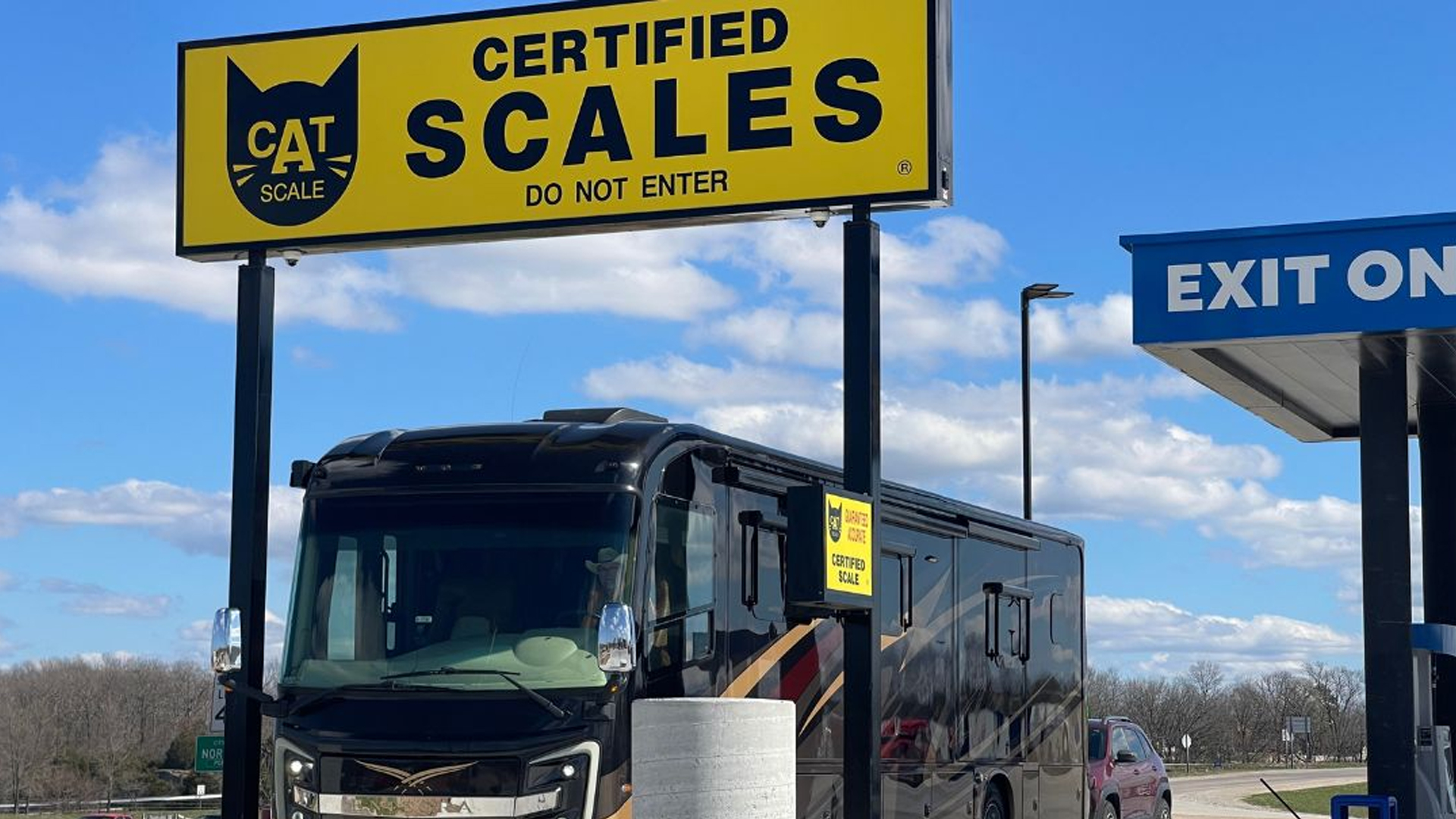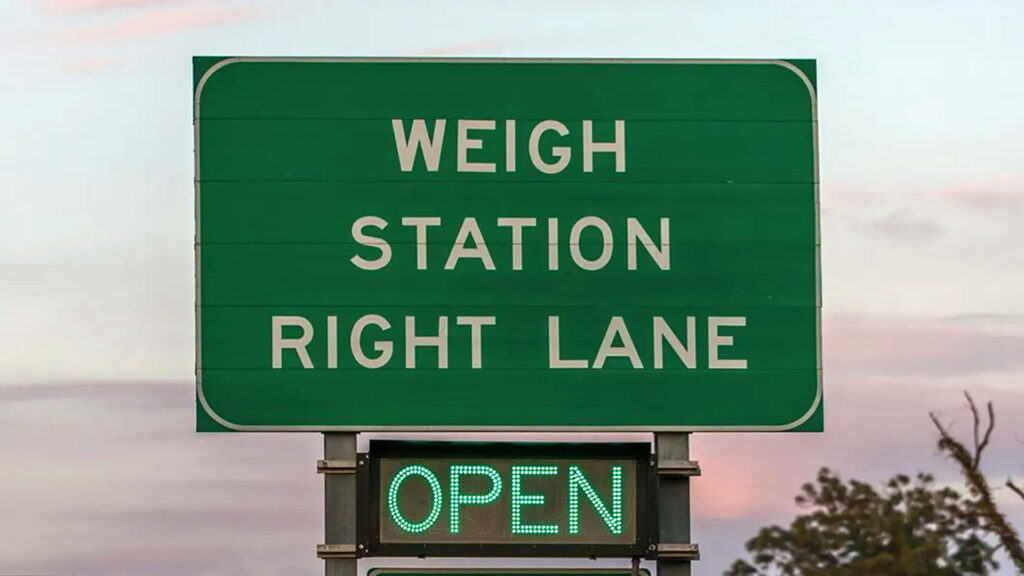
Do RVs Have to Stop at Weigh Stations? A Guide for RV Owners
Table of contents
- Understanding Weigh Stations: Purpose and Function
- RV Weight Classifications and Terminology
- General Rules for RVs at Weigh Stations
- State-by-State Weigh Station Requirements for RVs
- How to Properly Weigh Your RV
- Weight Management Strategies for RV Owners
- What Happens If You Skip a Required Weigh Station
- Take Control of Your RV’s Performance with Custom Skirting
- Related Articles
If you’ve ever hit the open road in your motorhome or travel trailer, you might have found yourself wondering, do RVs have to stop at weigh stations? It’s a common source of confusion among RV owners, and the answer isn’t as straightforward as many would like. Understanding what states require RVs to stop at weigh stations, whether do RVs need to stop at weigh stations, or if do motorhomes have to stop at weigh stations, is crucial for avoiding fines and ensuring you comply with road regulations. Many RVers also ask, do RVs have to go through weigh stations even if they’re only traveling for leisure. In general, most privately owned RVs used for personal travel are exempt from stopping at weigh stations. However, important exceptions exist depending on your RV’s weight, your state’s laws, and whether your RV is used commercially. This article will break down everything you need to know about when RVs need to stop, what states require RVs to stop at weigh stations, and how to manage your RV’s weight properly for safe and legal travels.
Understanding Weigh Stations: Purpose and Function
Before diving into the rules for RVs, it’s important to understand what weigh stations are and why they exist. Weigh stations are checkpoints on highways primarily used to monitor the weight of commercial vehicles. Their main goals are to ensure that vehicles comply with weight regulations, protect highway infrastructure, and promote road safety.
At a weigh station, trucks (and sometimes RVs) are weighed to verify that they are not exceeding allowable limits. Vehicles may also undergo safety inspections and documentation checks, like reviewing driver’s logs and permits. These processes help prevent accidents caused by overloaded vehicles and maintain the integrity of roads and bridges.
While weigh stations mainly target commercial trucks, questions like do RVs have to stop at weigh stations, what states require RVs to stop at weigh stations, and do RVs have to go through weigh stations arise because some RVs, depending on their size and use, may be subject to these checks too.
RV Weight Classifications and Terminology
To answer whether do RVs need to stop at weigh stations, you first need to understand a few key weight terms:
- Gross Vehicle Weight Rating (GVWR): The maximum safe operating weight of a vehicle, including passengers, cargo, fluids, and accessories.
- Gross Combined Weight Rating (GCWR): The total allowable weight of the vehicle and any trailers being towed.
- Actual Loaded Weight: The real-world weight of your fully loaded RV at any given time.
Different RV types have varying weight ranges:
- Class A Motorhomes: 13,000 to 30,000+ pounds
- Class B Motorhomes (Camper Vans): 6,000 to 11,000 pounds
- Class C Motorhomes: 10,000 to 14,000 pounds
- Fifth Wheels: 7,000 to 20,000+ pounds
- Travel Trailers: 2,000 to 10,000+ pounds
Knowing your RV’s weight classification is essential to determine whether do motorhomes have to stop at weigh stations or if your fifth wheel trailer must pull in. Typically, heavier RVs might fall under weigh station regulations, especially when approaching or exceeding 10,000 pounds.
General Rules for RVs at Weigh Stations

The general rule is: most privately-owned, non-commercial RVs do not need to stop at weigh stations. However, two main factors can change that:
- Weight Threshold: In many states, if your RV’s GVWR exceeds 10,000 pounds (or 26,000 pounds in others), you may be required to stop.
- Commercial Usage: If your RV is used for business purposes — such as a mobile office, rental, or promotional vehicle — you may be required to stop regardless of weight.
State-by-State Weigh Station Requirements for RVs
While it’s tempting to think one rule fits all, the truth is complicated. Here’s a state-by-state breakdown:
- States that require RVs over 10,000 pounds to stop:
- Arkansas
- Georgia
- Iowa
- Louisiana
- Massachusetts
- Michigan
- Minnesota
- Nevada
- North Dakota
- Ohio
- Rhode Island
- Washington
- Wisconsin
- States with a 26,000-pound threshold:
- Colorado
- New Mexico
- Oregon
- Pennsylvania
- States where law enforcement may direct RVs to stop regardless of weight:
- Alaska
- Iowa
- Illinois
- Kansas
- New Hampshire
- North Carolina
- Oklahoma
- Utah
- Vermont
- West Virginia
- Maine
- Mississippi
- Texas
It’s always best to check state-specific DOT websites before you hit the road to avoid surprises.
How to Properly Weigh Your RV

Understanding your RV’s actual weight is important for compliance and safety. But pulling into a public weigh station without needing to can cause confusion. Instead, consider these options:
- CAT Scales: Found at many truck stops, they provide an easy, low-cost way (about $12-$15) to weigh your RV.
- RV rallies and events: Some offer weighing services for attendees.
- Specialized RV weighing companies: Mobile services will weigh each wheel position for optimal safety.
By using these services, you’ll know your loaded weight and better understand if do motorhomes have to stop at weigh stations applies to your trip.
Weight Management Strategies for RV Owners
Here are a few tips:
- Travel with minimal water: Full tanks add significant weight.
- Be selective about cargo: Only bring essentials.
- Distribute weight evenly: Prevents sway and uneven tire wear.
- Consider lightweight upgrades: Newer, lighter appliances and materials can cut hundreds of pounds.
Managing weight isn’t just about avoiding fines — it’s about preventing tire blowouts, reducing engine stress, improving fuel economy, and enhancing braking performance.
What Happens If You Skip a Required Weigh Station
Ignoring a requirement to stop can lead to fines ranging from $100 to over $500 depending on the state. More importantly, if law enforcement sees a heavy RV that should have stopped but didn’t, they can pull you over for inspection.
While enforcement tends to focus more heavily on commercial trucks, you don’t want to be the exception. It’s better to understand do RVs need to stop at weigh stations for your specific trip and comply rather than risk penalties. Also, if your RV is overweight and involved in an accident, your insurance could deny claims based on non-compliance.
Take Control of Your RV’s Performance with Custom Skirting
While you’re learning whether do RVs have to stop at weigh stations and how weight regulations affect your journey, don’t overlook another important factor: aerodynamics and protection. Custom Skirting can help you enhance your RV’s performance by reducing wind resistance, improving insulation, and safeguarding your rig against harsh weather conditions.
At Custom Skirting, we blueprint and tailor your skirting on-site for a flawless fit—no generic solutions here. Our exclusive “No-Snap, No-Gap” channel system seals out water, snow, and wind better than anything else on the market. With over a decade of proven performance in the toughest winters across the U.S. and Canada, our skirting is the #1 choice for RV owners who demand quality, durability, and convenience.
Adventure further, stay protected, and maximize your RV’s efficiency with Custom Skirting.
Get your custom fit today and experience the difference!
